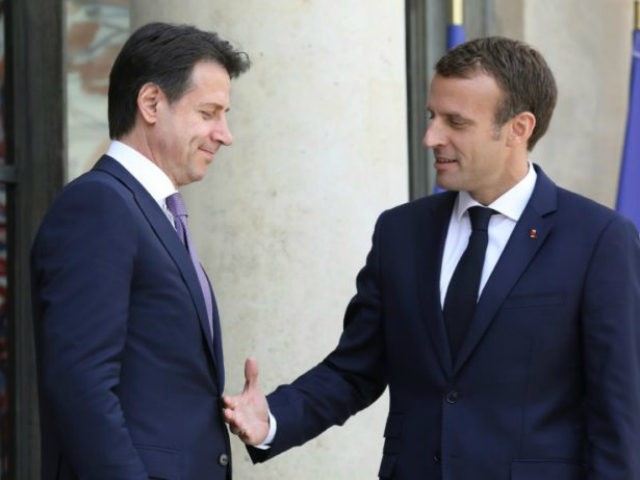Italian Prime Minister Giuseppe Conte has shown himself a tougher leader than expected, standing up first to France’s Emmanuel Macron and now Germany’s Angela Merkel over immigration issues.
Conte has been working to reform Italy’s broken immigration system since taking office less than a month ago, and his conservative policies have put him at odds with open-border advocates such as Macron and Merkel.
Balking at an EU provision that would force hundreds of thousands of migrants to return to Italy, Conte threatened to pull out of the upcoming immigration summit in Brussels. Conte stated he would not attend a summit whose texts were prepared ahead of time, insisting he was only interested in fair, open talks. Merkel caved, agreeing to shelve the draft that would have sent more than 650,000 migrants back to Italy.
Conte’s hard bargaining called attention to Merkel’s hypocritical refusal to take in migrants that she would require countries with external borders—like Italy—to accept.
Italy also made concessions by agreeing to accept the German migrant ship Lifeline, despite Deputy Prime Minister Matteo Salvini’s suggestion that the 226 migrants onboard be sent to Holland because of the ship’s Dutch registration.
Merkel’s ability to focus on the international immigration crisis has been called into question amid internal squabbling with Minister of Interior Horst Seehofer.
Seehofer, of the conservative Christian Social Union (CSU), has been calling for a more comprehensive “migration masterplan,” to which Merkel objects.
President Emmanuel Macron agreed to accept migrants who entered Europe through France and then moved into Germany. Conte, however, held Merkel to her own standards, pointing out that Germany should not expect Italy to admit the migrants they rejected.
Originally intended to be an opportunity for Germany to discuss immigration policy with EU states that have external borders, Sunday’s summit has been expanded to include Bulgaria, Austria, and the Netherlands.
Greece’s Dimitris Avramopoulos called for more uniform migration policy among EU member states, arguing it would dissuade immigrants from moving between countries once they reach Europe. Avramopoulos also stressed the importance of working with Africa and tightening border controls, allowing states to decide on asylum requests before would-be illegal migrants step onto EU soil.
Merkel’s summit Sunday promises to facilitate lively discussions representing a vast array of views on immigration. Merkel hopes the summit will serve as a precursor to an all-encompassing EU summit sometime after Austria takes over the rotating EU presidency on July 1.
Follow Thomas D. Williams on Twitter Follow @tdwilliamsrome

COMMENTS
Please let us know if you're having issues with commenting.